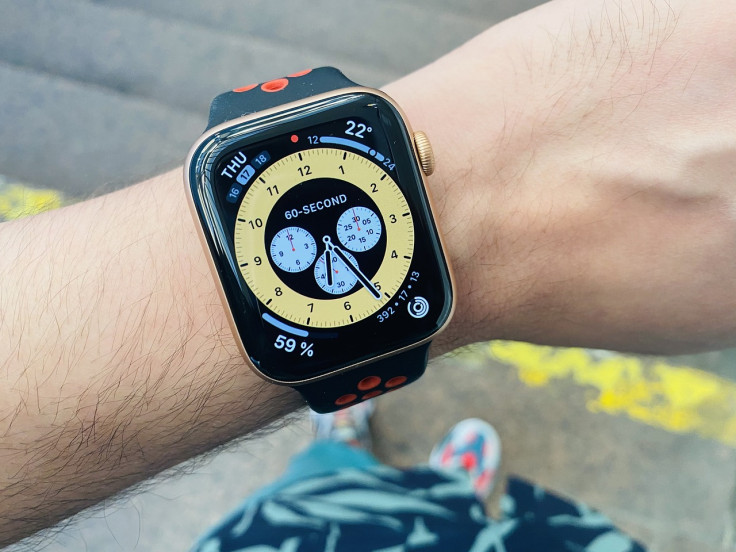
The Apple Watch has become an indispensable gadget for many, seamlessly blending technology with fashion and fitness. However, for some users, the joy of owning an Apple Watch is marred by an unexpected issue: the dreaded Apple Watch rash.
This skin irritation, often manifested as redness, itching, and even blistering, can range from mild to severe and significantly impact the wearer's experience. In this article, we'll explore the reasons behind the Apple Watch rash, how to prevent it, and effective methods for treating the irritation.
Why Is My Apple Watch Giving Me A Rash?
The primary culprit behind the Apple Watch rash is an allergic reaction to the materials used in the watch or its band. These materials include:
1. Nickel: Nickel is a common allergen found in various metals, including some Apple Watch casings.
2. Acrylics and Resins: Acrylics and resins, used in both the watch and band, can cause allergic reactions in sensitive individuals.
3. Rubber and Silicone: Rubber and silicone, commonly used in bands, can also trigger allergic reactions.
4. Allergy to Band Material: You may be allergic to the material of the band, such as nickel, acrylic, or rubber.
5. Moisture and Sweat: Trapped moisture and sweat under the band can create a favorable environment for bacteria and fungi, leading to skin infection.
6. Friction and Rubbing: A loose-fitting band can rub against the skin, causing irritation and even chafing.
7. Soaps and Lotions: Residues from soaps, lotions, and other chemicals can irritate the skin.
How To Avoid Apple Watch Rash?
Fortunately, there are several preventive measures you can take to minimize the risk of developing a rash from an Apple Watch:
1. Choose Hypoallergenic Materials: Opt for watch bands made from hypoallergenic materials like titanium or medical-grade silicone, which are less likely to cause skin reactions.
2. Keep It Clean: Regularly clean your Apple Watch and its bands to remove accumulated sweat, dirt, and bacteria that could contribute to skin irritation.
3. Opt for Breathable Bands: Choose bands with perforations or a breathable design to allow air circulation and minimize moisture buildup.
4. Rotate Your Bands: Avoid prolonged wear of a single band, especially during physical activities. Rotate between bands to give your skin a break and reduce the risk of irritation.
5. Ensure Proper Fit: Wear your Apple Watch snugly, but not too tightly. A properly fitting band should allow for comfortable movement without constricting your wrist.
6. Maintain Cleanliness: Regularly clean your Apple Watch and band with mild soap and water. Dry thoroughly after cleaning to prevent moisture buildup.
7. Avoid Wearing During Sleep: Give your skin a break from the watch by removing it before bed.
8. Pay Attention to Reactions: Monitor your skin for any signs of irritation, especially during the first few days of using a new watch or band.
How To Treat Rash From Apple Watch?
Here's how to get rid of an Apple Watch rash:
1. Take a Break: If you notice redness or irritation, take a break from wearing your Apple Watch to allow your skin to heal.
2. Topical Treatments: Apply over-the-counter hydrocortisone cream or a soothing ointment to the affected area to reduce inflammation and itching.
3. Keep it Dry: Ensure the affected area is kept dry. Avoid wearing the watch until the rash has completely healed.
4. Consult a Dermatologist: If the rash persists or worsens, consult a dermatologist for professional advice and treatment options.
5. Switch to a Different Band: Experiment with different bands made from alternative materials to find one that doesn't irritate your skin.
6. Use a Barrier: Apply a thin layer of clear nail polish to the metal parts of the watch band to create a barrier between the metal and your skin, reducing the risk of nickel exposure.
7. Consider Allergy Testing: If you suspect a nickel allergy, consider undergoing an allergy test to identify specific allergens and make informed choices about your watch bands.
How Do I Clean The Apple Watch Band?
1. Remove the Band: Detach the watch band from the watch before cleaning.
2. Use Mild Soap: Clean the band with a mild soap and water solution, ensuring you don't soak it excessively.
3. Avoid Harsh Chemicals: Refrain from using harsh chemicals or abrasive cleaners, as they may damage the band or cause skin irritation.
Conclusion
While the Apple Watch is a remarkable piece of technology, it's essential to address the issue of rash from the Apple Watch band head-on.
By understanding the causes of an Apple Watch rash and implementing preventive measures and proper treatment, users can continue to enjoy the benefits of their smartwatch without the discomfort of skin irritation.
Choose hypoallergenic materials, practice good hygiene, and be mindful of your skin's needs to maintain a rash-free experience with your Apple Watch.







